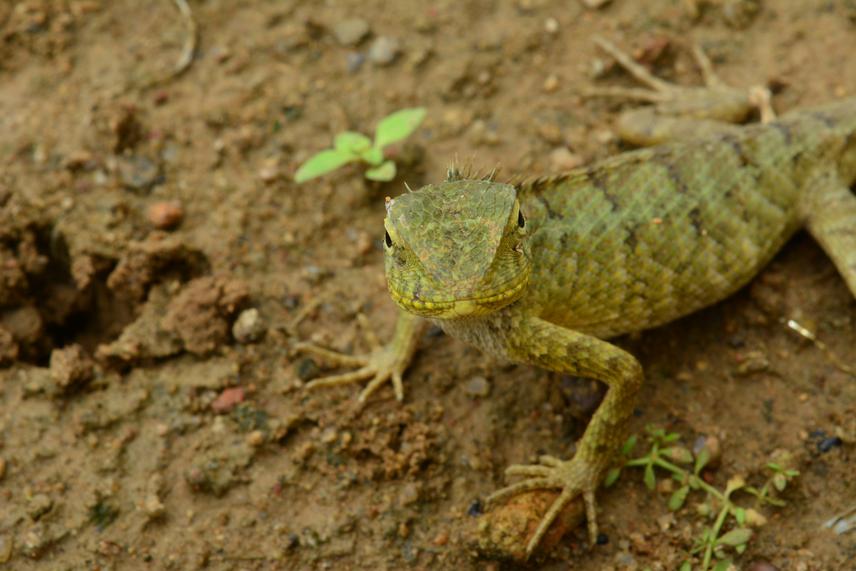Given the environmental impacts of chemical insect control and amidst burgeoning demands for greater food production in the 21st century, the need for biological control is maximum. To add to this future climate warming is unabated and will have an overarching impact on agriculture and crop production. Biological control advocates the utilization of “natural enemies” to regulate crop pests and maintain them below the economic threshold. Among the higher groups of animals, reptiles form an important “natural enemy guild”.

Model Reptile C. versicolor. © Deyatima Ghosh
To conserve a species in an agroecosystem with a focus on conserving their ecosystem service provisioning is the main question of this research. We aim to achieve this by understanding the impact of temperature change on learning in reptiles; something that is directly linked to the survival of free-ranging reptiles and the essential service that they provide. The project will look into these aspects with Calotes versicolor as a model reptile to better understand the impact of cognition of service provisioning and, subsequently, the impact of small changes in the early environment on the behavioural response of the animal.
Previous research has shown that small differences in incubation environment (within the normal range for the species) can result in profound differences in their cognition into adulthood. It is therefore essential to understand the impact that this may have on service provisioning now to allow communities to adapt to future challenges.
This is a sustainable approach where we study the response of reptiles as a strategy and based on that implement a conservation action with the community. This project explores how such conservation action can produce benefits to the farming community.
Successful conservation requires the cohabiting community to understand the benefits they obtain from a species or service; conserving this will result in the conservation of other species within the niche. This is particularly pertinent as agricultural land use is expanding. Since implementing any conservation strategy requires sufficient time to get accepted by the community, prolonged practice can be ensured only when farmers are given hands-on experience and training where the benefit from conserving wildlife is evident and profitable.
Aims of the project:
1. How temperature rise will impact the cognition (learning) for foraging in reptile
2. Translation into natural habitat: How learning in reptiles can be utilized in conserving their service provisioning
3. Raising awareness among farmers and disseminating our findings
4. Involving community in translation study (conservation action)
